New book peeks over the wall into Philadelphia’s grand gardens
“Private Gardens of Philadelphia” showcases beautiful places few people have seen.
From Philly and the Pa. suburbs to South Jersey and Delaware, what would you like WHYY News to cover? Let us know!
Every great garden started out small.
When Leslie Ann Miller and Richard Worley bought a sprawling stone mansion in 1985, the once-grand estate grounds built with 19th-century industrial wealth had been carved up, sold off and mostly neglected.
Miller recalled the landscaping around her new home as “stark.”
“Richard and I said, ‘Well, maybe we should do something!’”
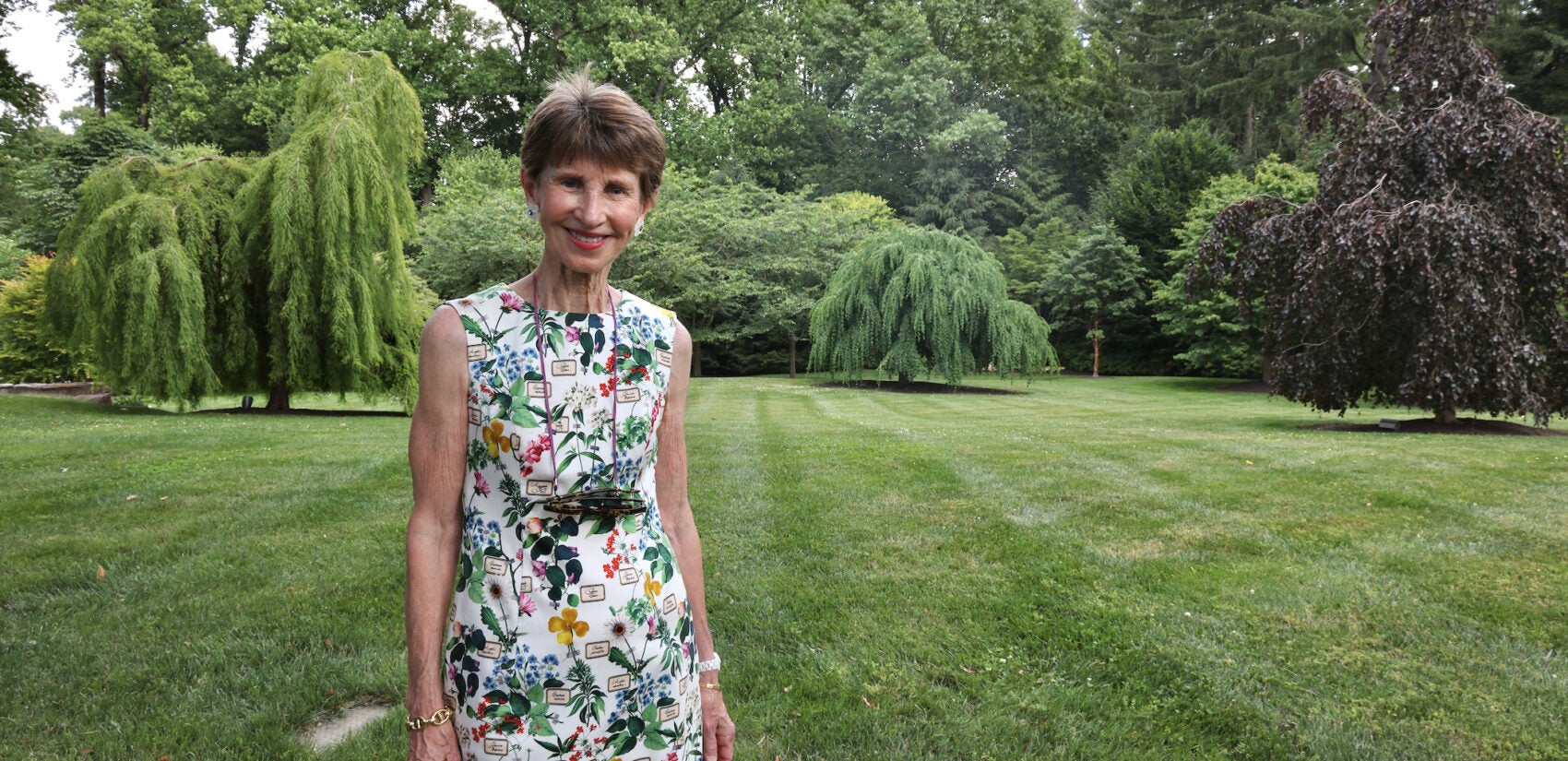
Having no previous experience gardening, Miller called Al Vick of Vick’s Wildgardens, at the time one of the Delaware Valley’s premiere landscape designers. He installed a raised bed near the house with some hardscaping.
“They went in and put in nice beds with some rocks scattered around. I looked at it and said to Vick, ‘So now what do I do?’” Miller recalled. “He said, ‘Well, you probably need some help.’”
With time, vision and not a little help, the 3-acre garden feels like Miller’s arboreal dream brought to life. The property has bloomed into a showpiece — you’re greeted by stone schist walls and terraces. A frog pond cascades with a babbling waterfall. There are shade gardens of hostas and hellebores. In the sunlight, a shock of bright pink lilies and blue agastaches cuts across a ¼ acre of lawn bordered by a stand of cherry trees.
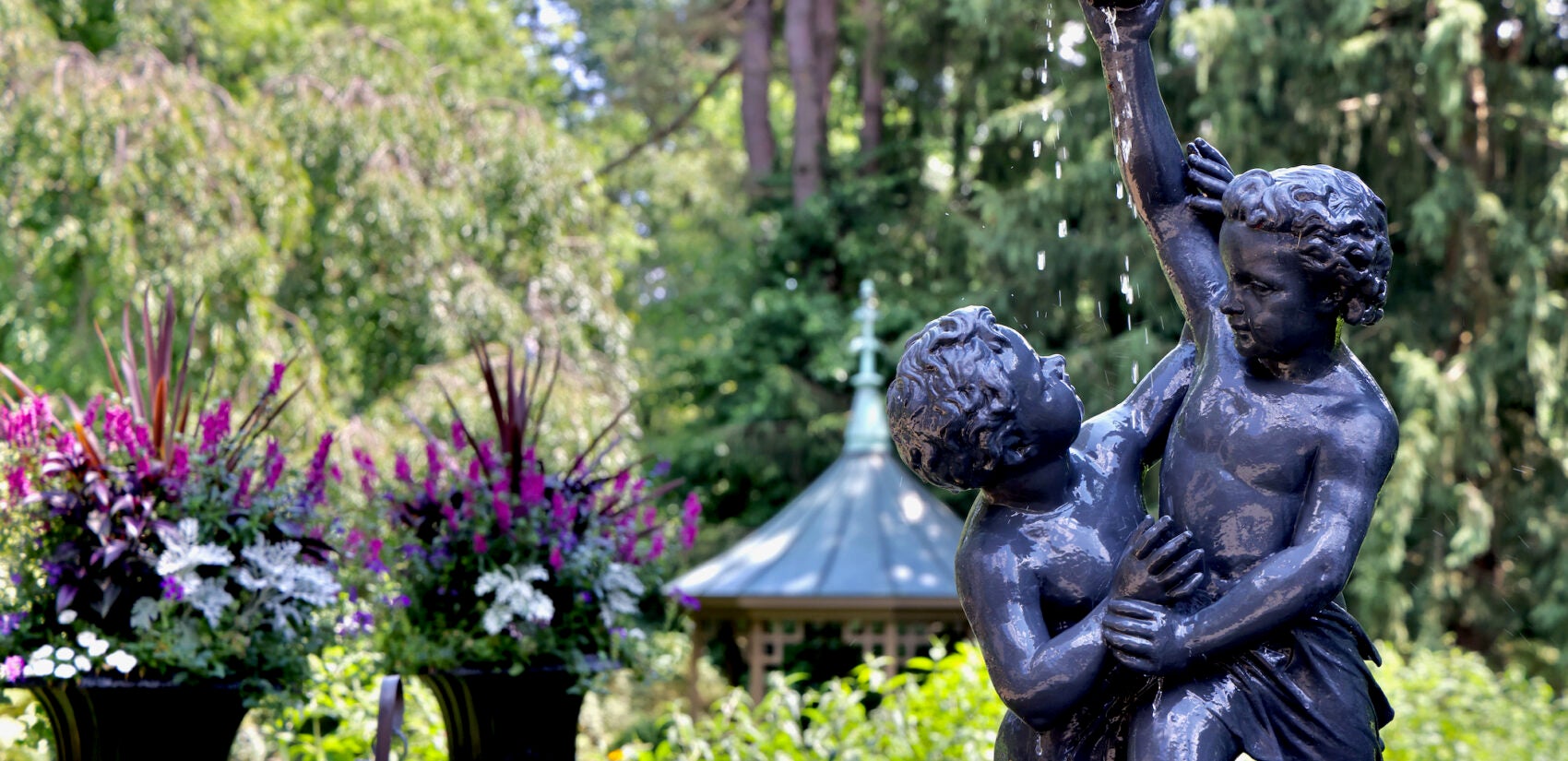
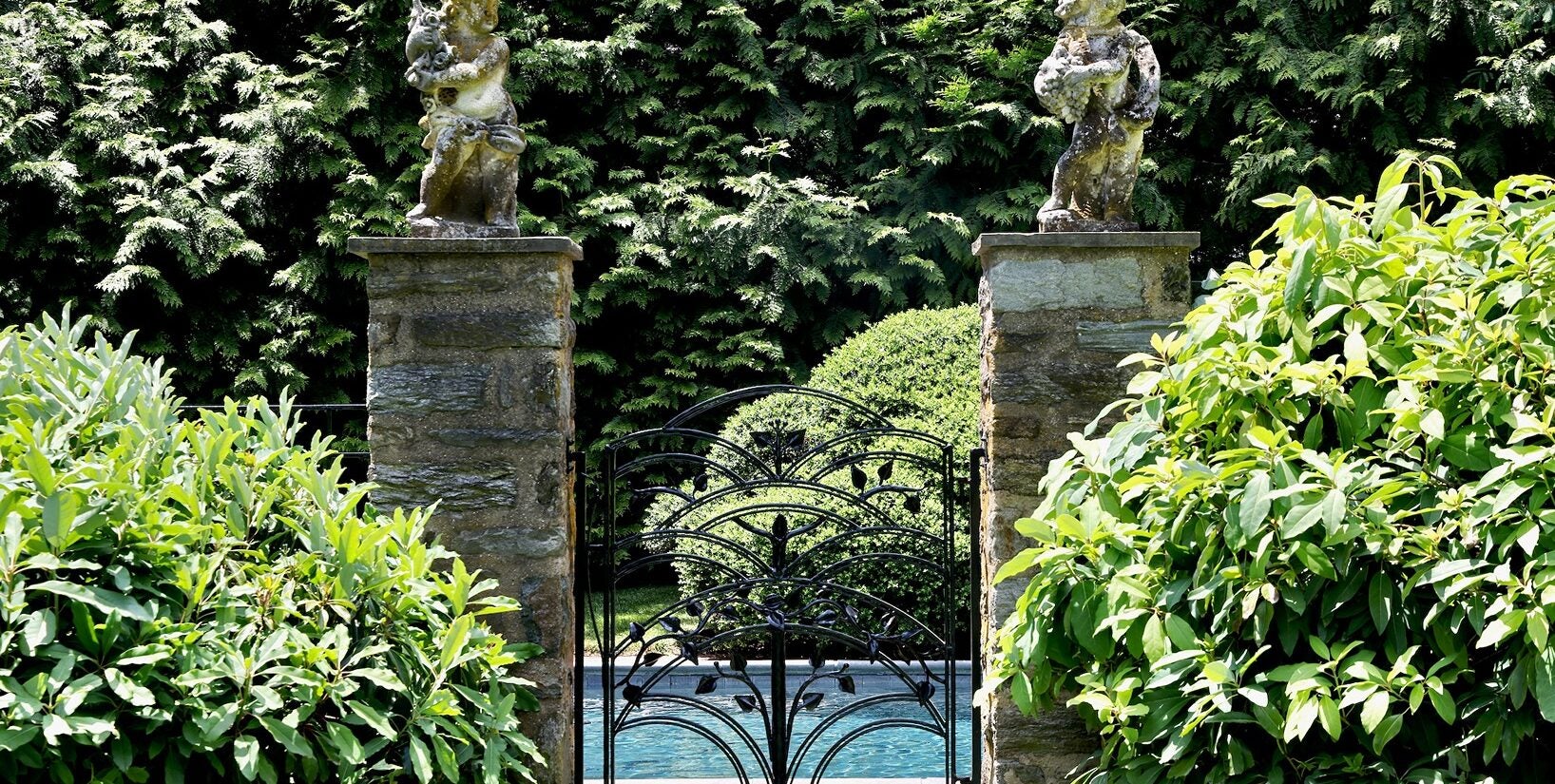
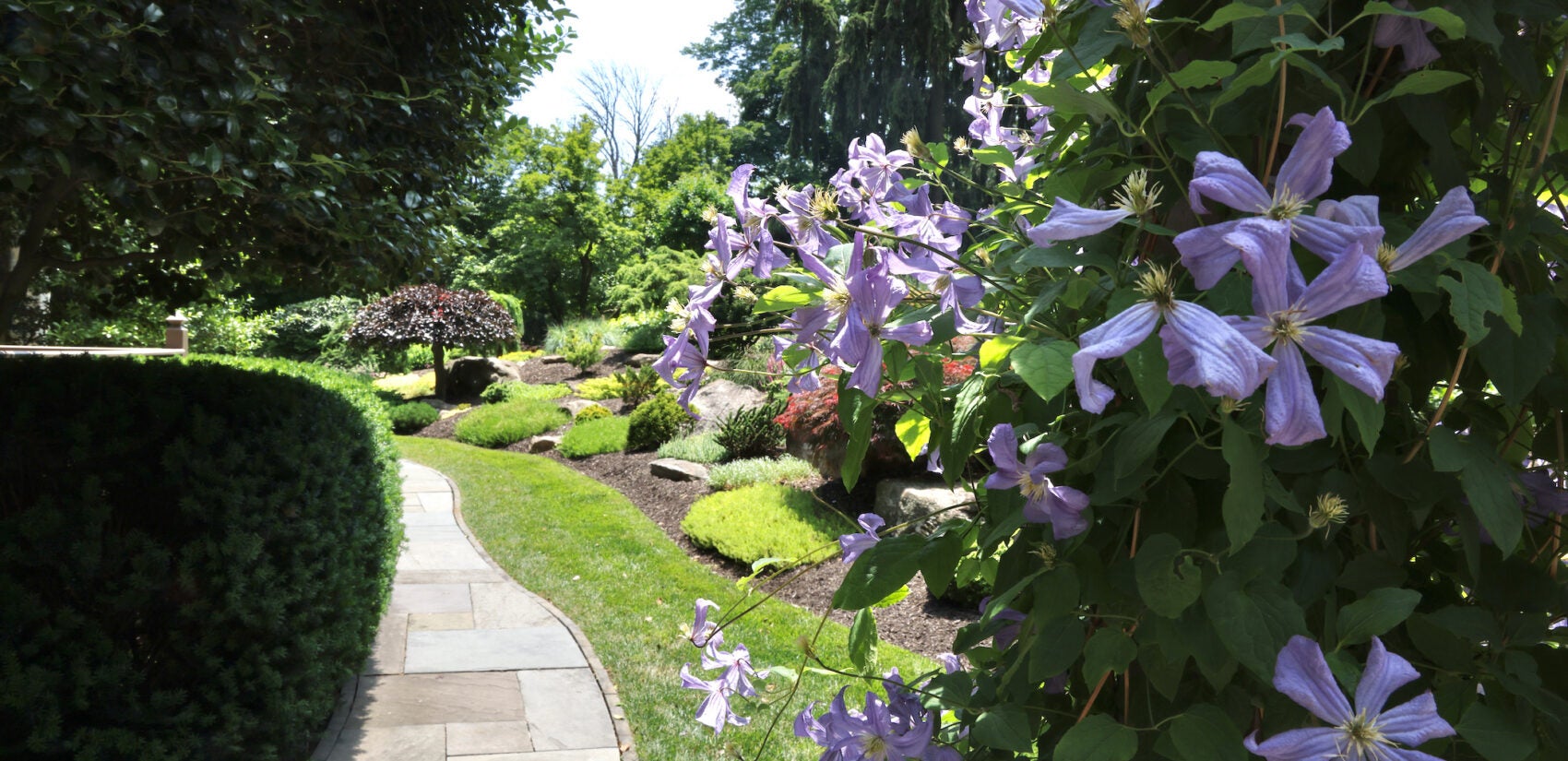
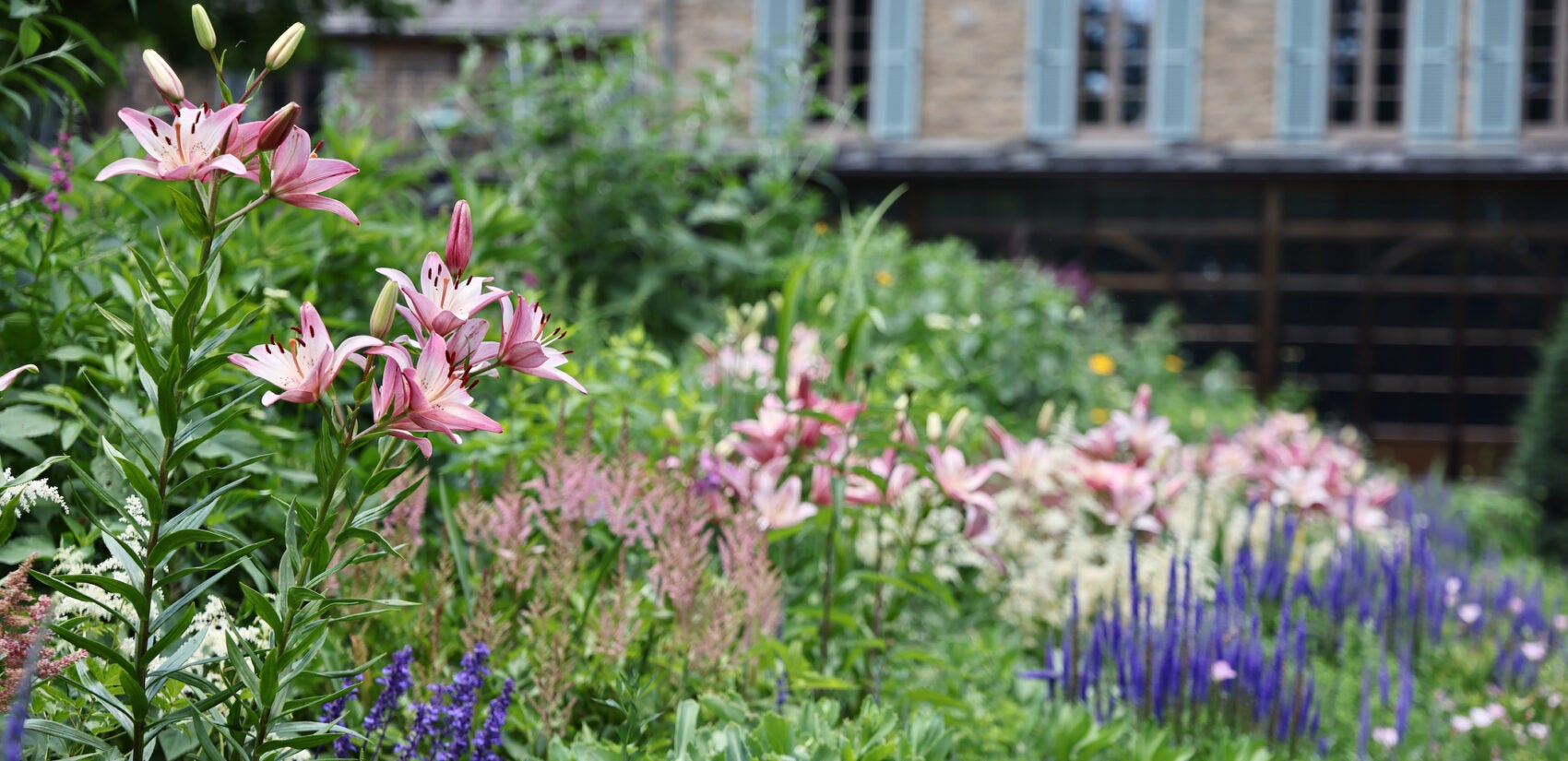
The three acres recalls the golden age of 19th-century estate landscaping, but with a 21st-century sensibility.
“I wanted it to bring it back in spirit,” Miller said. “What we’ve got here actually is a garden journey that has resulted in a collection of smaller gardens throughout the property.”

The garden is profiled in the new book “Private Gardens of Philadelphia” by author Nicole Juday and photographer Rob Cardillo.
“I am a transplant to Philadelphia from Illinois. I grew up on a farm,” said Juday. “When I came here in my 20s it was pretty mind-blowing. I had never been to a public garden. I had never seen a really good garden, even though I grew up in a very rural place.”
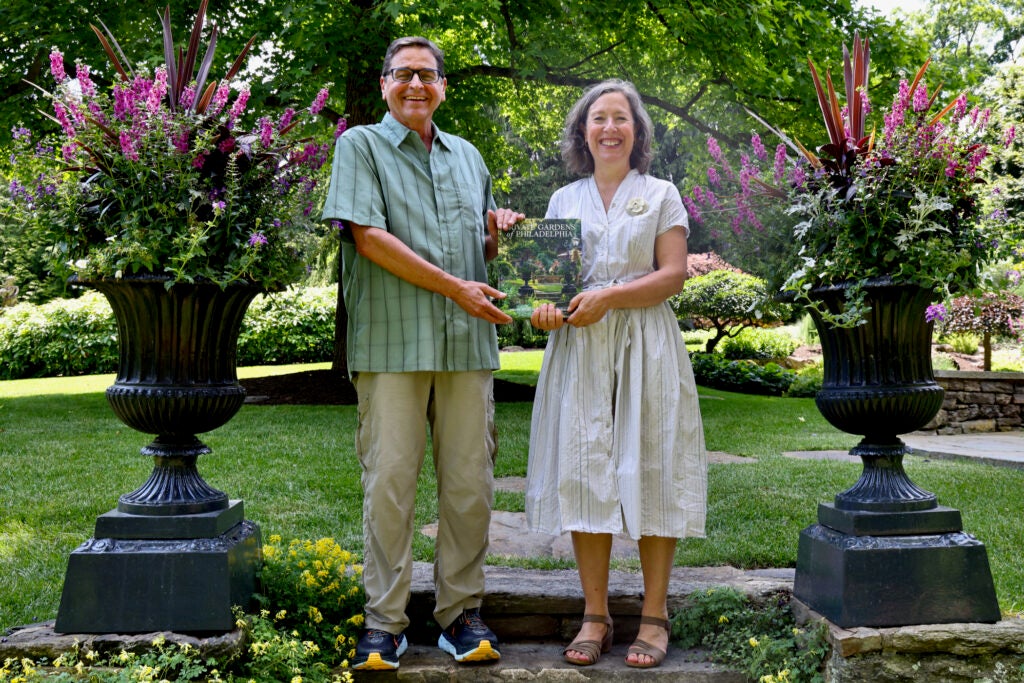
Juday spent years working for the Pennsylvania Horticultural Society, where she was able to spend time enjoying prominent private gardens. That put her in touch with many of the homeowners whose gardens are featured in the book.
“I never was able to answer the question for myself: Why is there such a rich tradition of horticulture in this region?” she said.
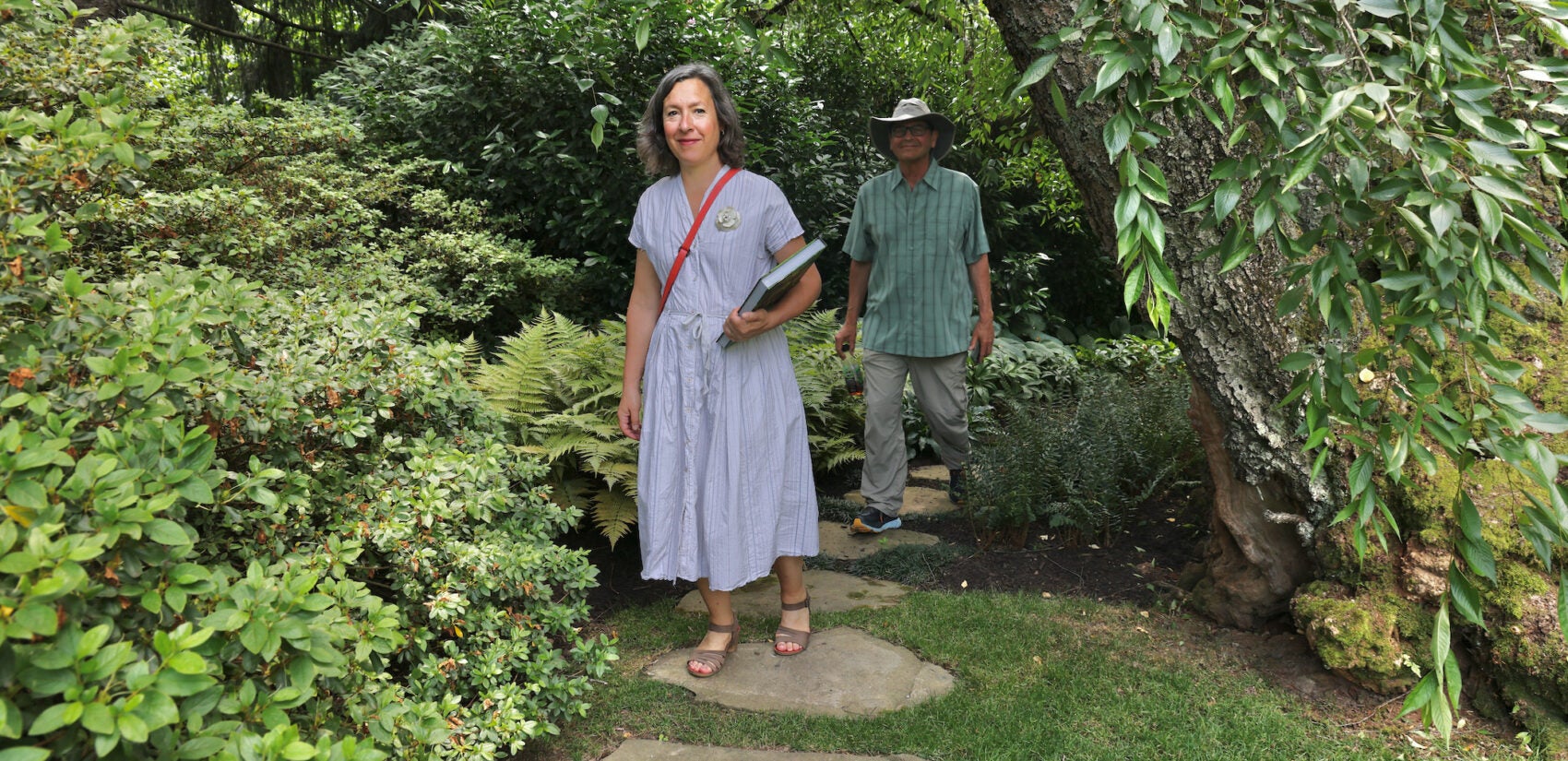
Philadelphia’s horticultural roots go back to the 18th century, when the region became a hotbed of botanical activity supplying curious Europeans with flora from the exotic Americas. Then in the 19th century, the fantastic wealth accumulated by Philadelphia industrialists allowed them to build conspicuously lavish gardens in the aristocratic styles of the French and English.
When Reggie and Frank Thomas went about building their garden in Haverford on the grounds of what used to be Cheswold, the former estate of rail magnate Alexander Cassatt (brother of artist Mary Cassatt), their shovels would frequently tap buried pieces of history. Ruined stone walls and toppled chimneys long forgotten underground had to be unearthed.
Gardeners like the Thomases, as well as Jennifer and Steve Bilt of Doylestown, inherited the bones of palatial landscapes that had to be wrestled into a 21st-century garden. Craig Wakefield installed a garden where one was never intended. He bought a vintage mid-century modern home in Abington whose boxy structure and crisp lines were designed to defy the organic textures of plants.
Wakefield had to design a garden for an architectural concept actively fighting against the idea of a garden.
“There’s no gardening movement for mid-century modern architecture,” Juday said. “He had to make one up.”
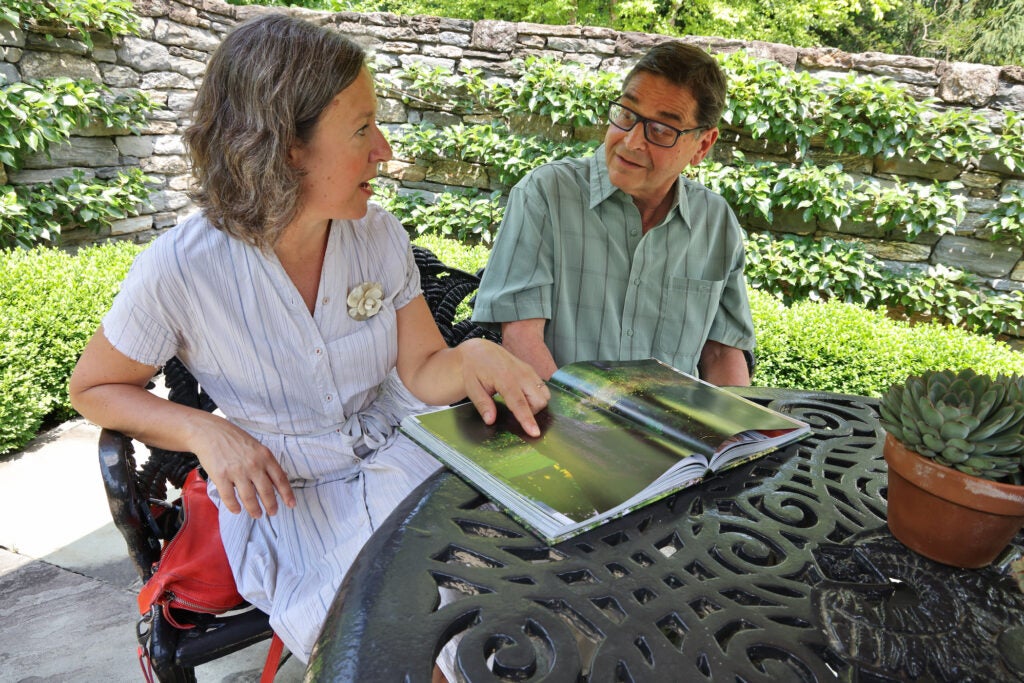
“Private Gardens of Philadelphia” is primarily a book of photography. To capture the gardens in photos, Cardillo returned to each property several times through subsequent seasons.
Sitting for an interview at a patio in Miller’s garden, Cardillo noticed the landscape has already changed from when he took pictures about a year earlier.
“To quote an old Greek philosopher, you never step in the same garden twice,” Cardillo said. “That’s part of the beauty of any garden. It’s always a push pull with nature. It’s not static.”
“Private Gardens of Philadelphia” is a peek into beautiful landscapes not normally seen by the public. Some are literally behind walls.
By contrast, Syd Carpenter’s garden spills into the dense suburban street of Mount Airy. Her townhouse on less than half an acre is surrounded by her ever-changing garden practice, one she shares with most of her neighbors. Her lushly planted yard rolls seamlessly into the one next door.
“It is continuous. If you walk the different areas of this neighborhood, you can just see how intense the gardening is,” Carpenter said. “It’s something that is part of the culture of this neighborhood, is to garden.”
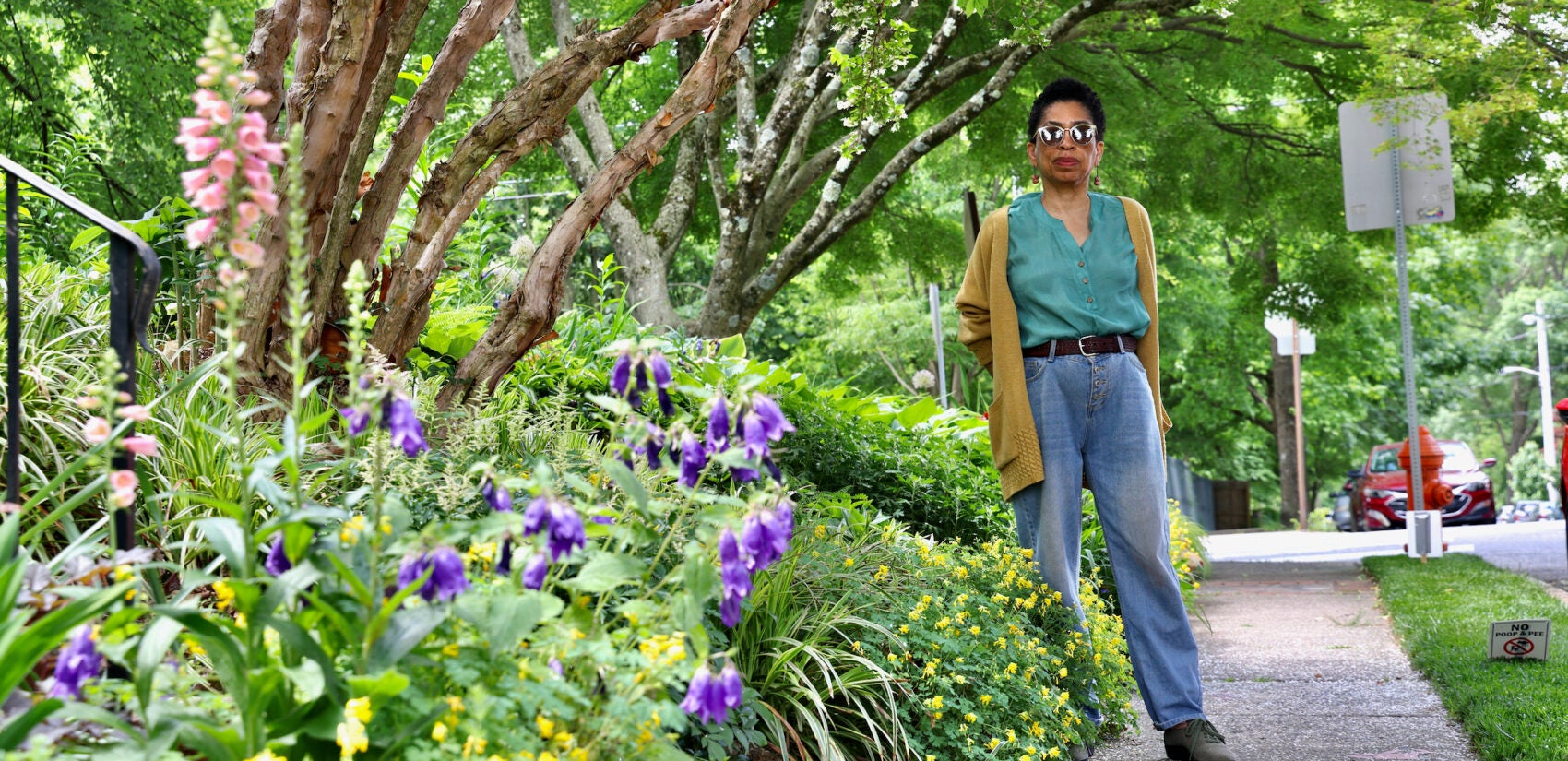
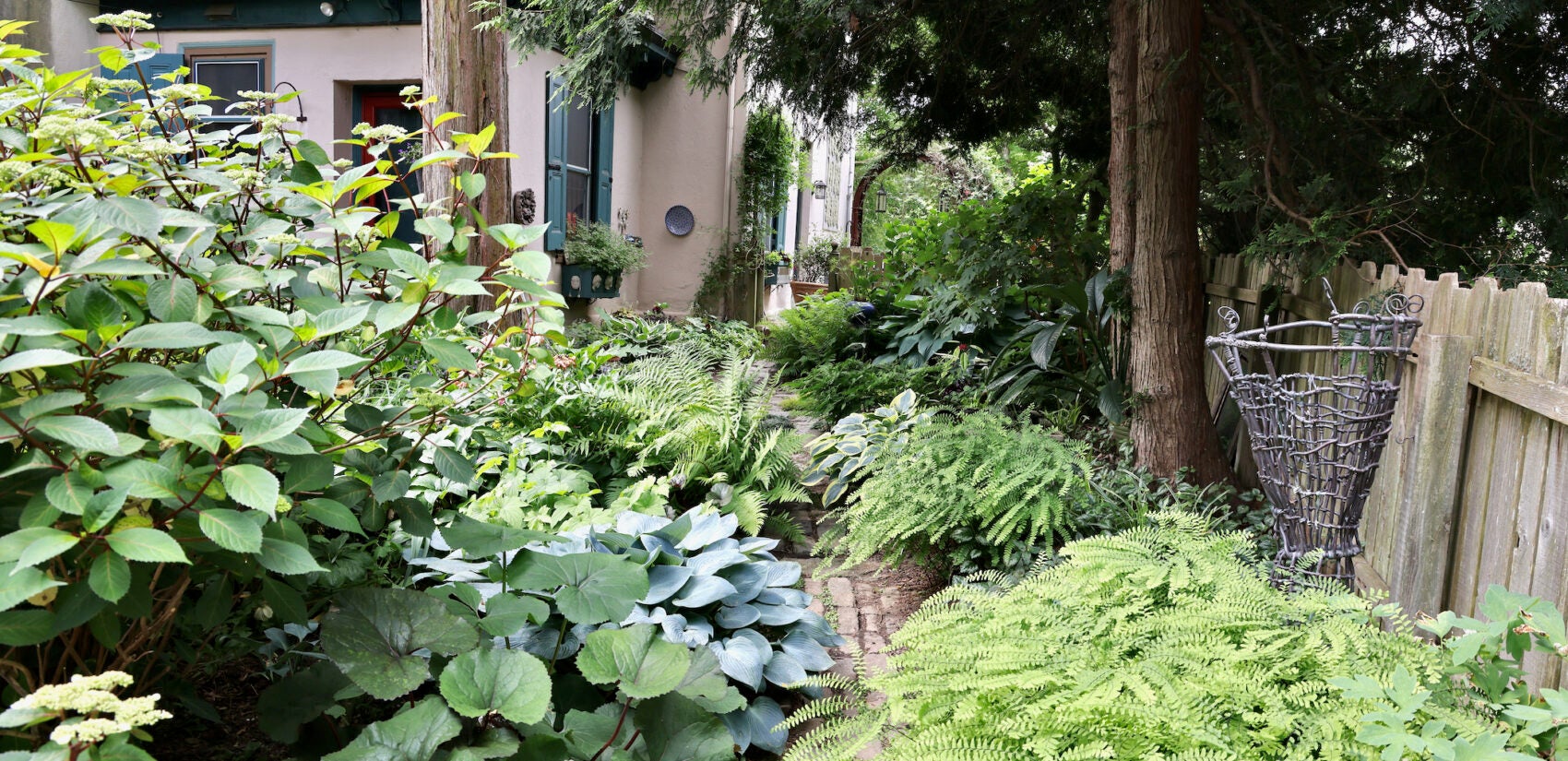
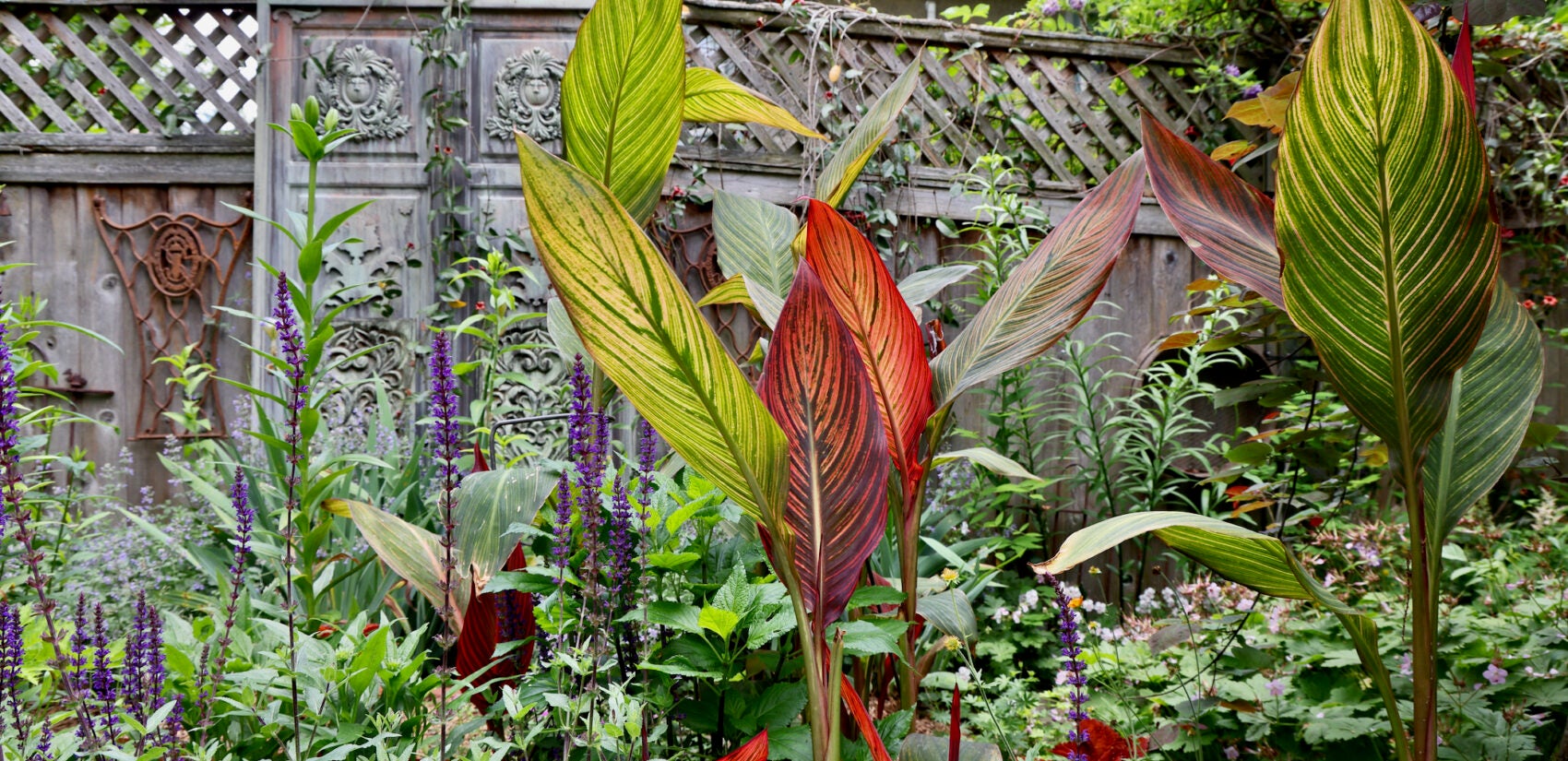
Carpenter is a prominent sculptor whose artistic practice is deeply tied to her gardening. In her yard she works intuitively with the eye of an artist, building contrasting colors and textures around the trees that form the foundation of the space.
“My Japanese maple and my red maple here, and my crepe myrtle,” she said while walking around the garden. “And this guy over here, which is a deutzia called a Pride of Rochester. I have to work with these folks. These are important. So I plant in response to them.”
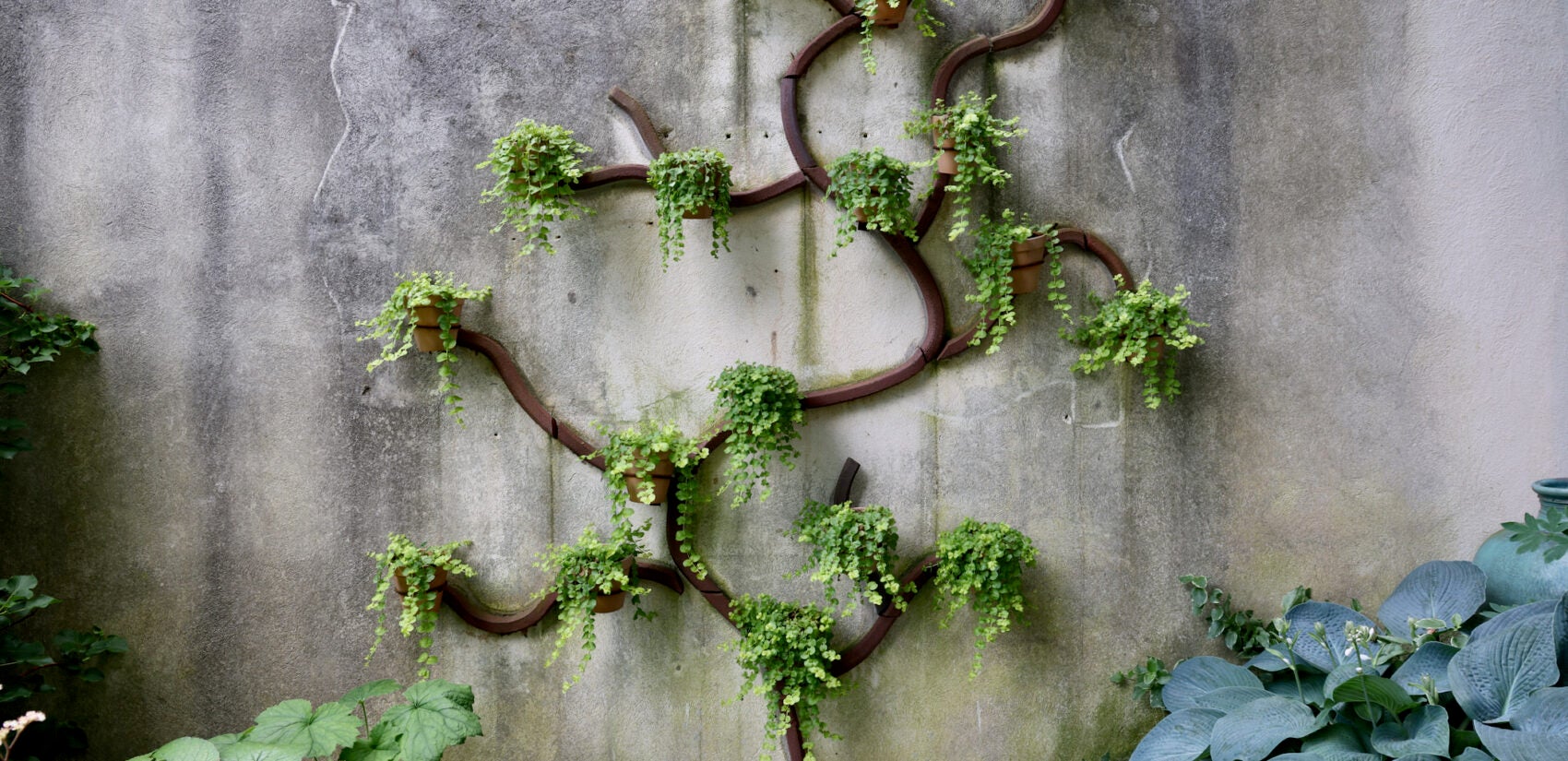
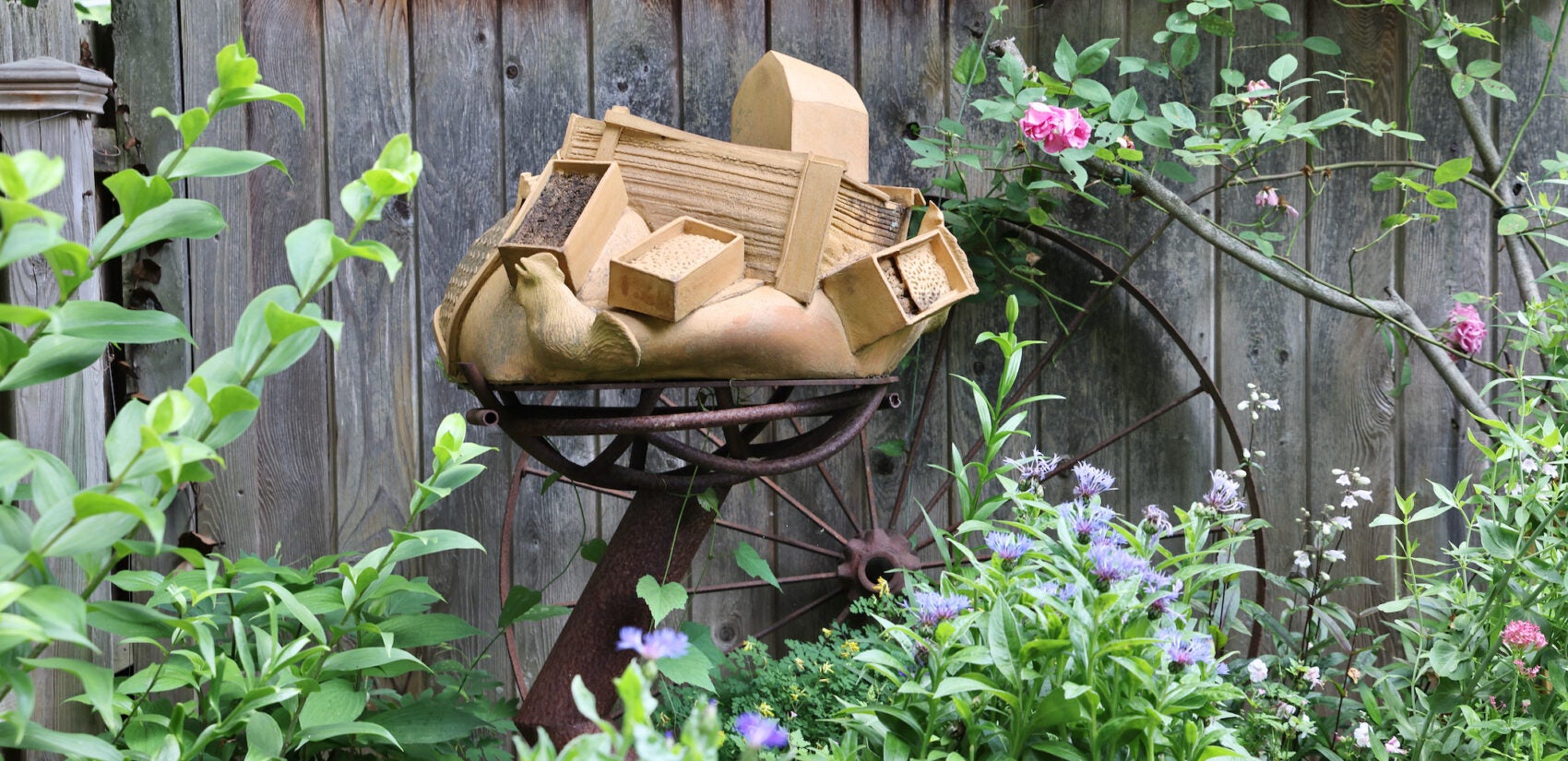
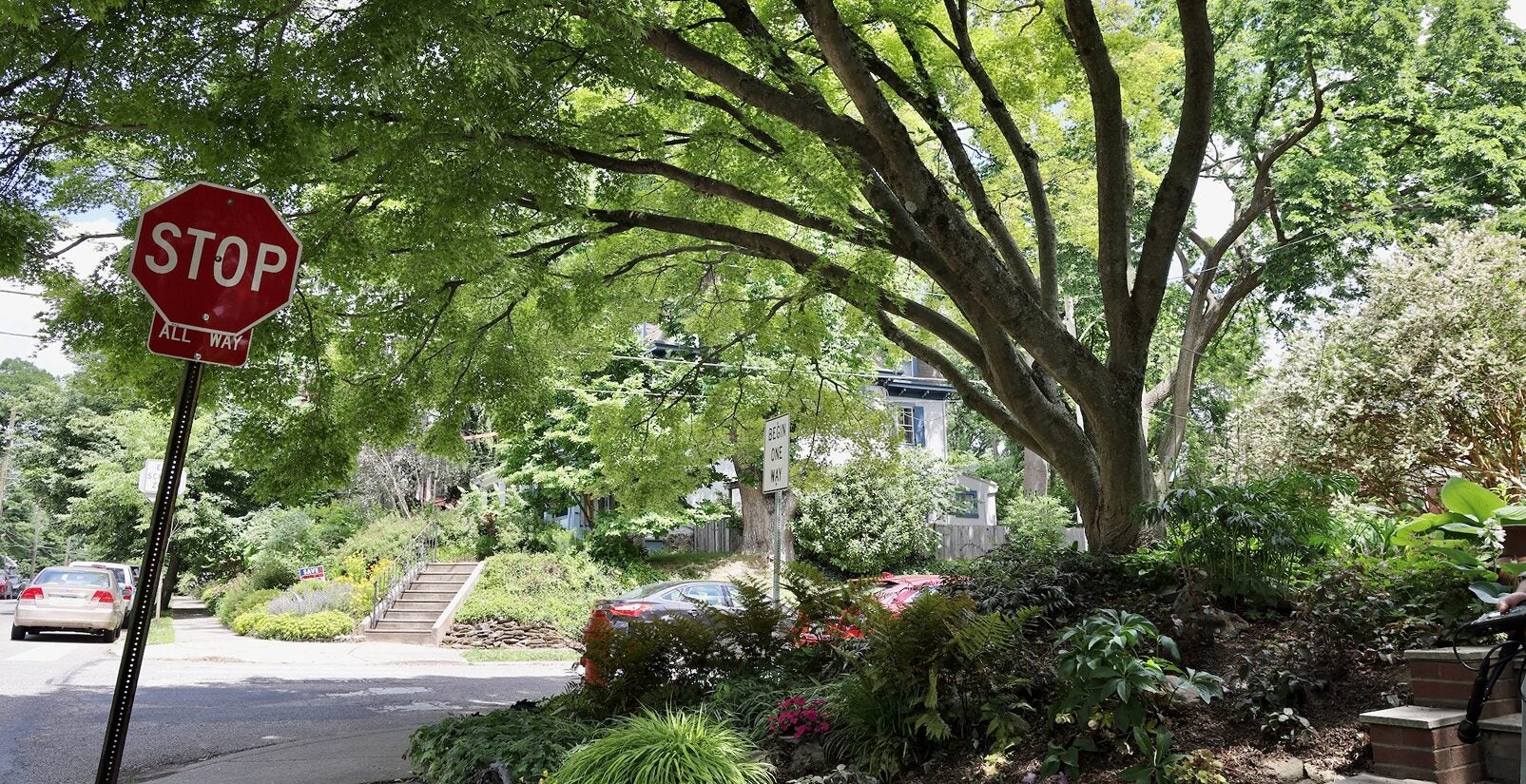
Carpenter herself never appears in the photographs of “Private Gardens of Philadelphia,”’ nor do any of the other featured gardeners. Cardillo intentionally avoids including people in his pictures, as they might distract from the gardens themselves.
“Any photograph will be aged by the people in it,” he said. “The clothing they might wear, or hairstyles that will definitely look different in 10 years. Whereas the landscapes, hopefully, are timeless.”
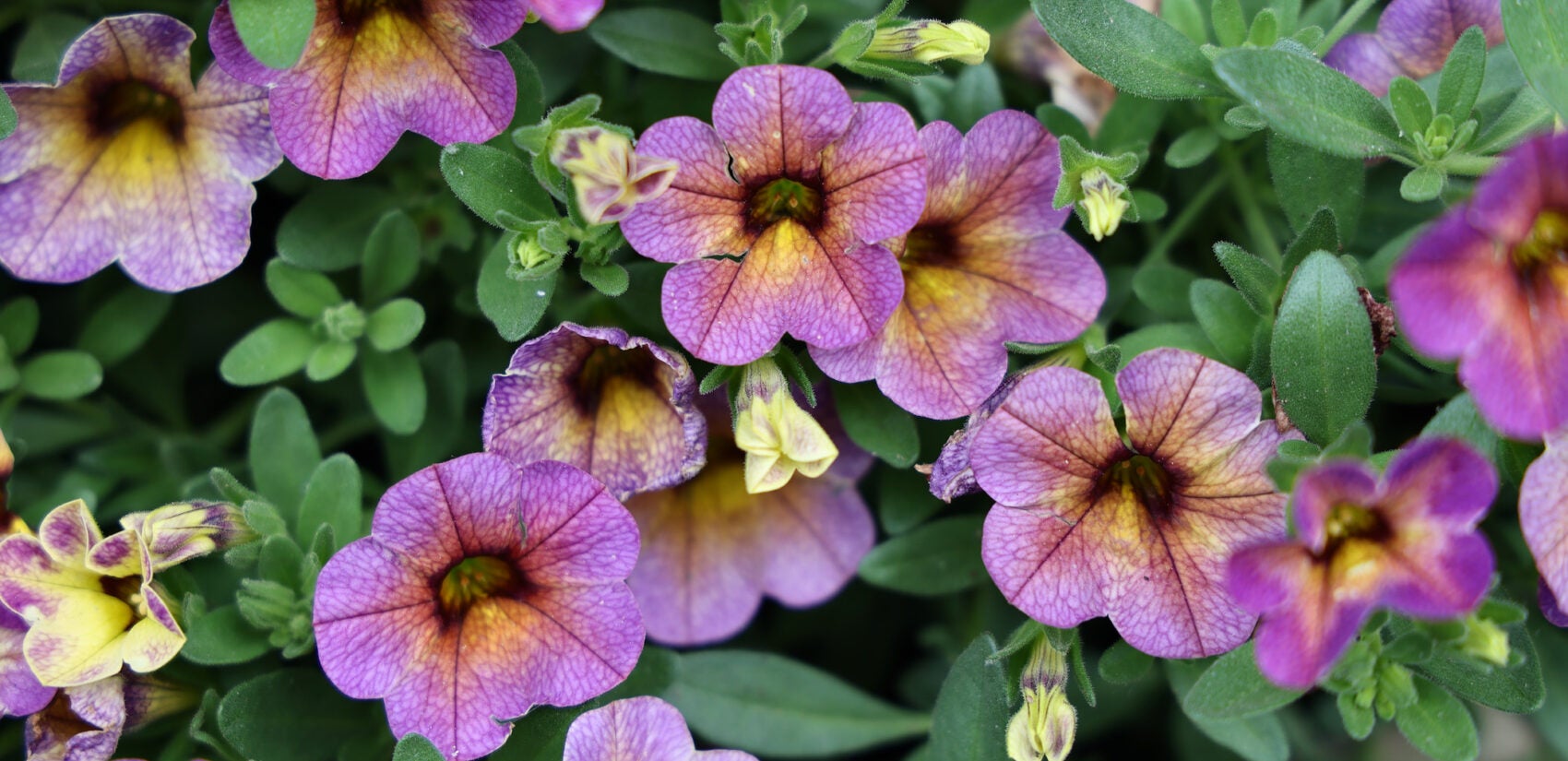
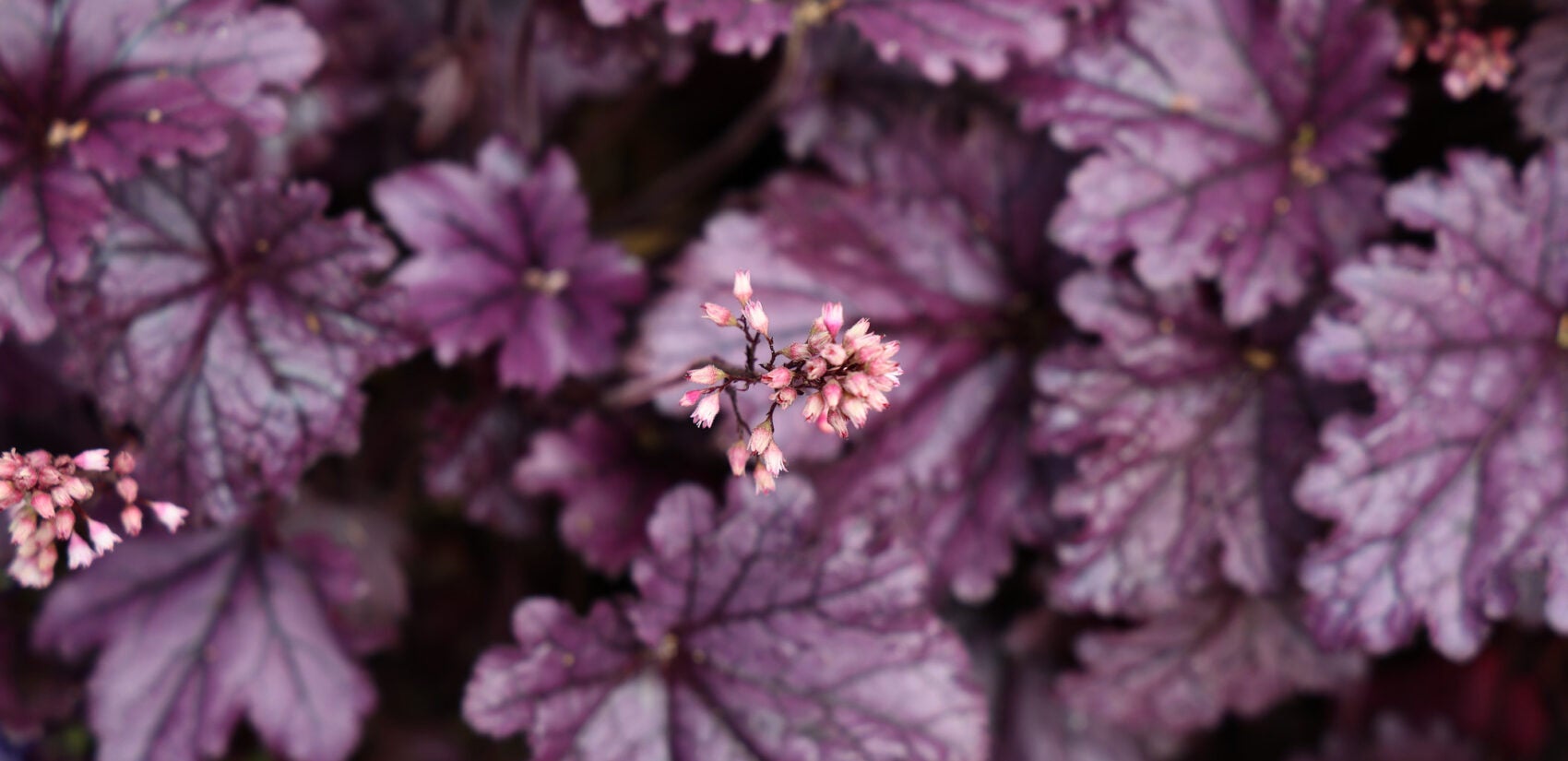
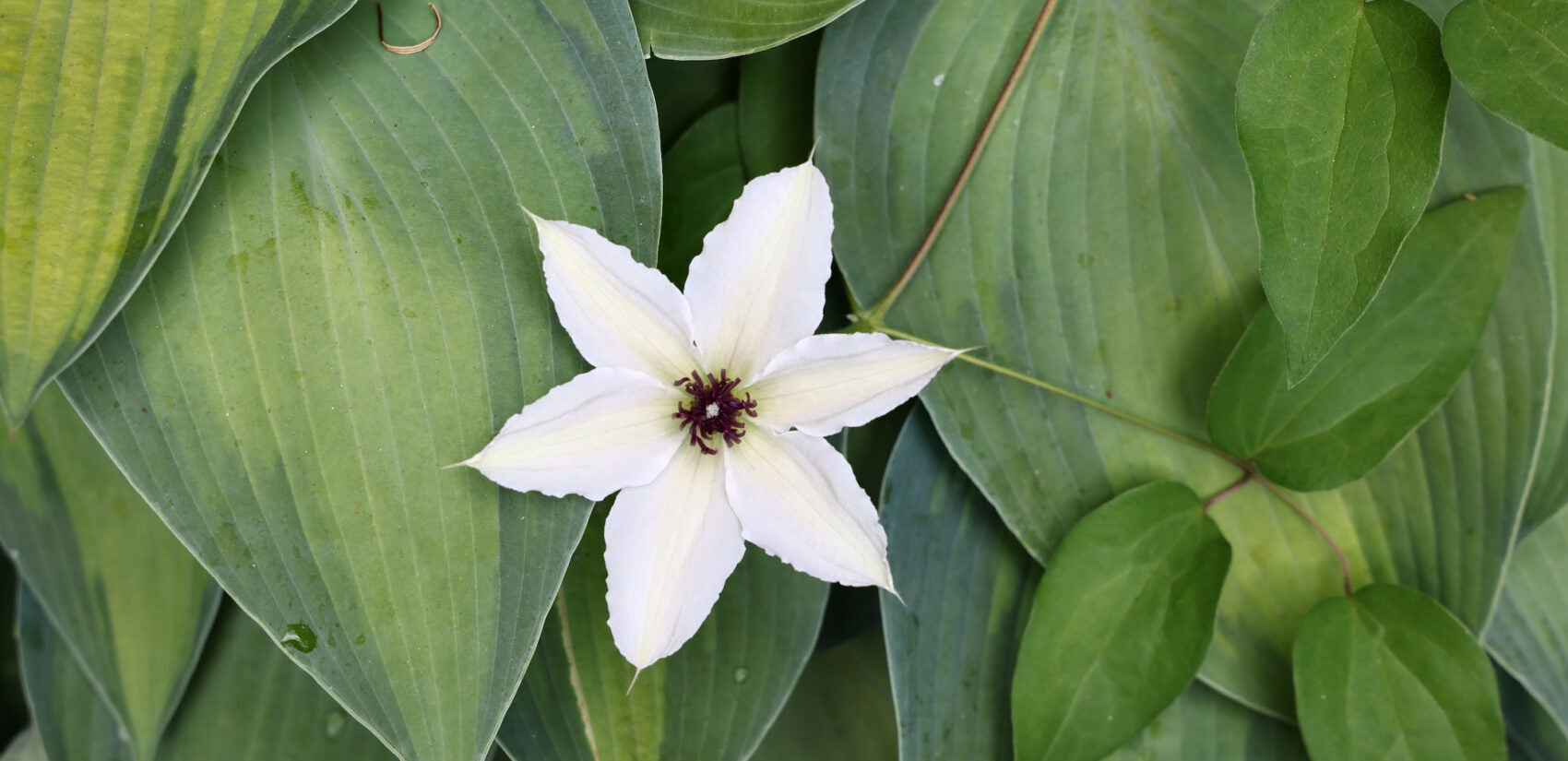
Landscapes may be timeless, but they are nevertheless tied to the people who make them. Carpenter, for example, adds her artistic sensibility and actual pieces of art: Her pottery is incorporated into the space.
At 71 years old, Carpenter is mindful of her capabilities, always planning her garden to stay manageable and within her reach.
“What is sustainable as time goes on and I get older?” she said. “Can I be as intricate and be as physically involved with making these details appear and remain beautiful? Or do I have to let some things take over? The mood of the garden changes with time, my time and its own time.”
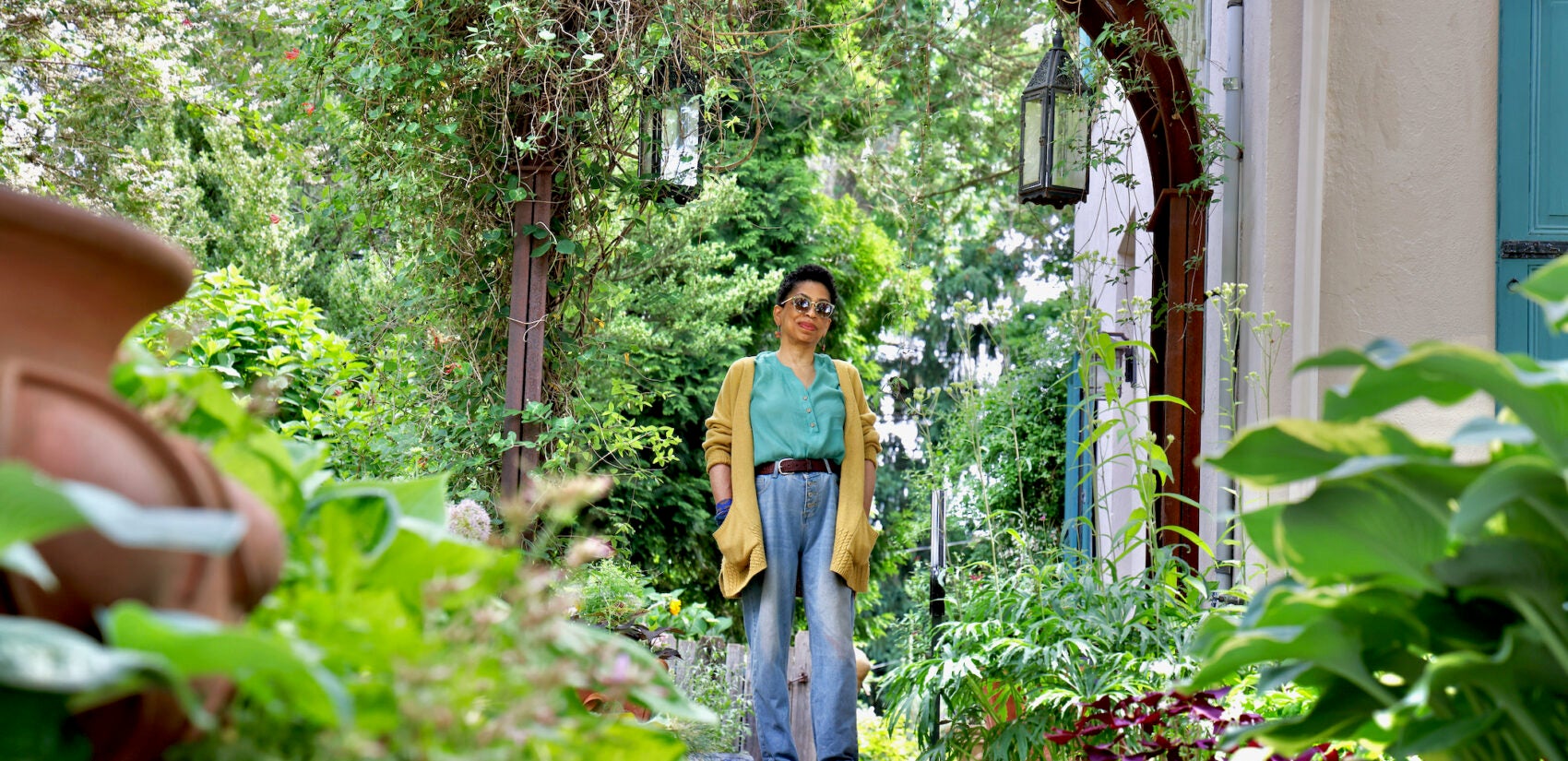
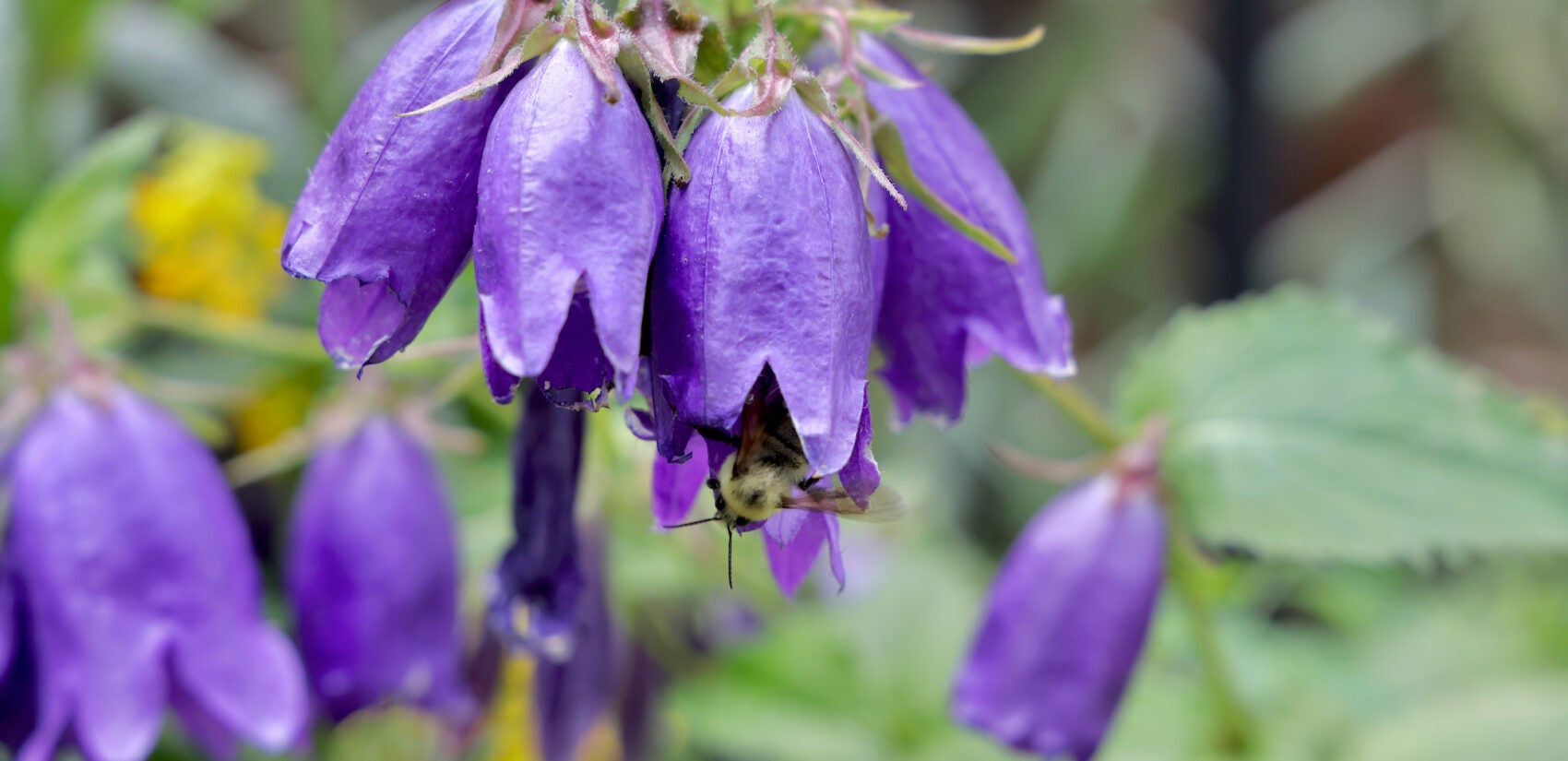
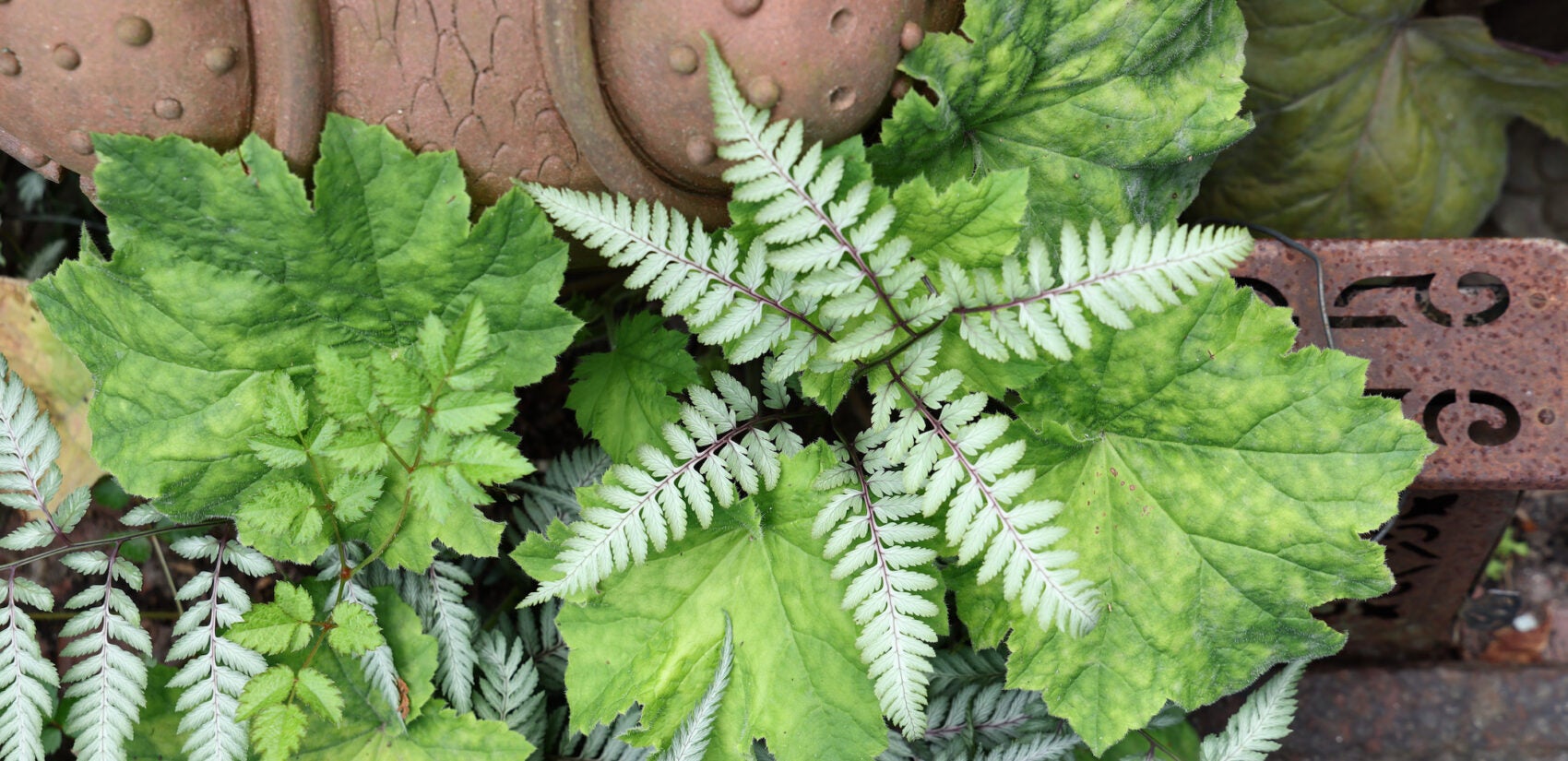

Get daily updates from WHYY News!
WHYY is your source for fact-based, in-depth journalism and information. As a nonprofit organization, we rely on financial support from readers like you. Please give today.






